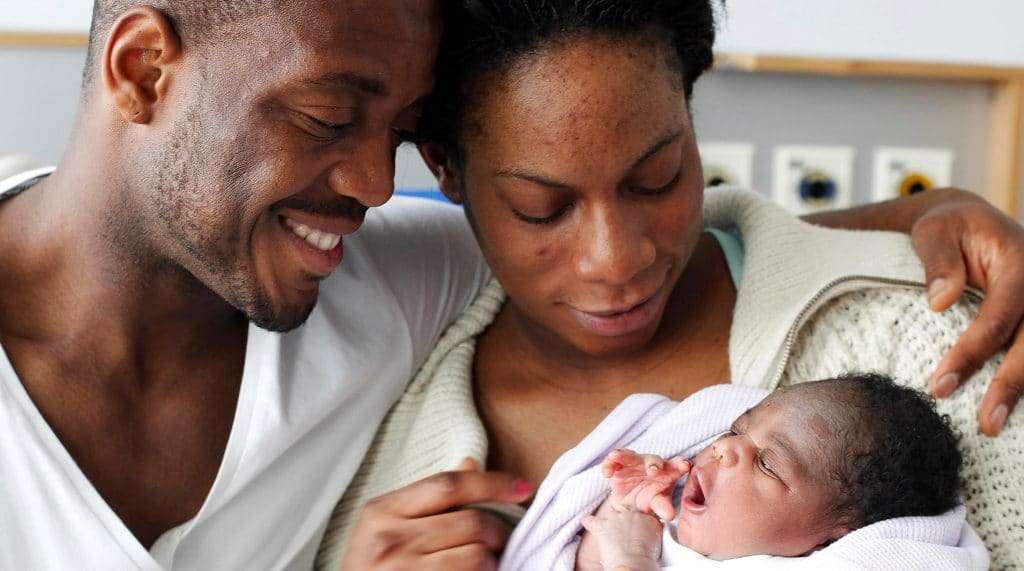FG And UNICEF Launch E-Birth Registration In South West States

The Federal Government of Nigeria, in collaboration with the National Population Commission (NPC) and the Lagos State Ministry of Youth and Social Development, is set to launch an e-birth registration initiative in five states in the South West region by the end of July 2024. This initiative aims to ensure every child in Nigeria has a legal identity.
The e-birth registration, conceptualized two years ago, is designed to change the narrative of birth documentation in Nigeria. The public is encouraged to see this exercise as an opportunity to secure the rights of their children and wards, ensuring access to all societal benefits.
Denis Onoije, Child Protection Specialist at UNICEF’s Lagos Field Office, outlined the targets for the digital registration exercise. For 2024, the initiative aims to register 9.4 million children under five and over 1.5 million children under one year old. In the Southern region alone, the target is 928,523 under-five children, with specific goals for each state: Oyo (304,058), Osun (151,317), Ekiti (133,276), Ogun (172,516), and Edo (167,356).
President Bola Tinubu recently inaugurated the National Coordination Committee of the Electronic Civil Registration and Vital Statistics (e-CRVS) System under the NPC. This platform will digitize all civil documentation, including birth and stillbirth registrations, birth attestations, adoptions, marriage notifications, divorce notifications, migration records, and death registrations.
Onoije emphasized that the right to birth registration is enshrined in various international instruments, such as the UN Convention on the Rights of the Child (articles 7 & 8), the African Charter on the Rights and Welfare of the Child (article 6), and the Nigeria Child Rights Act (2003) (Article 5(2)). Achieving “One Legal Identity for All” is a critical Sustainable Development Goal for Nigeria.
Citing the latest NPC data, Onoije noted that Nigeria’s estimated population is 216,783,381, with 16,705,671 children under five and 3,554,005 children under one. He highlighted the global issue of 164 million unregistered children, with more than half (around 91 million) living in Africa. The e-birth registration aims to bridge this gap, ensuring every child counts.
“The last Nigerian census was conducted about 20 years ago, and we haven’t had another since. For us, registering Nigerians, especially children, is crucial. We want to make birth registration faster, hence the shift to digital methods,” Onoije explained. Last year, the initiative covered 20 states, with plans to expand to more states in 2024, starting with Ekiti, Edo, Osun, Ogun, and Oyo.
Celine Lafoucriere, Chief of UNICEF Field Office for South West Nigeria, underscored that birth registration is a fundamental human right. Without legal identity, a child remains unseen and unsupported. “A registered child has access to protection rights, healthcare, education, and other essential services,” she said. “Unregistered children remain invisible to governments, hindering effective planning and support.”
Blessing Ejiofor, Communication Officer at UNICEF Lagos, highlighted the importance of e-birth registration in generating vital statistics necessary for effective planning and policy implementation. “Accurate and timely data from birth registration also allow for proper monitoring of progress towards Sustainable Development Goals (SDGs),” she noted.
Mrs. Toyin Oke-Osanyintolu, Permanent Secretary of Lagos State Youth and Social Development, praised the e-birth registration initiative, emphasizing its role in contributing to the nation’s growth by ensuring every child starts life with a legal identity. Represented by Director Adeola Labisi, she reaffirmed the Ministry’s commitment to protecting children’s rights through policy formulation and implementation.
Bamidele Sadiku, State Director of the NPC in Lagos, highlighted that the Commission has 4,000 civil registration centres across Nigeria’s 774 local government areas. He stressed that a well-developed civil registration system, including e-birth registration, is essential for documenting vital events and providing citizens with access to basic rights and services.

